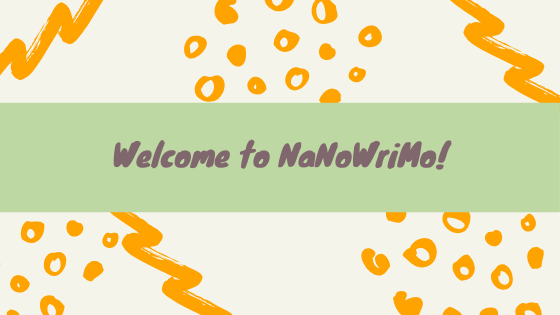Hello writers! Hopefully, you’re each waist-deep in NaNoWriMo (National Novel Writing Month). If you haven’t started yet, or have fallen off the wagon just a bit, just jump right back on! The only thing standing between you and a finished novel is your hesitation. And you, sweet writer, have nothing to lose! As you pound away at your 1,667 words per day, start thinking about characterization. That may sound like a complicated term to some, but it’s simply the process of creating characters in your story. Give them depth, quirks, and their own unique imprint in the storyline. There are…
-
-
November is a busy month for writers: it’s National Novel Writing Month, also known as NaNoWriMo. What happens during NaNoWriMo? It’s simple really. To celebrate the only official book-writing month of the year, writers are encouraged to spend 30 days putting their fingers to the keyboard, completing a 50,000-word book by November 30th. One month. Boom. Done. You’re one step (a first draft) closer to becoming a published author. If you have struggled with finding the time and discipline to finish your book, this is one of the easiest ways to jump those hurdles. Your word count can vary from day-to-day,…
-
Writing your first book is no easy endeavor. Some might even say you need a certain amount of life experience to add depth to your writing—fiction or nonfiction—but there are a lot of benefits to publishing a book before you turn 30 years old. Here are seven reasons that support publishing your book before entering the next decade of your life: 1. Financial freedom It’s easier to save up and spend the necessary money to professionally self-publish your book when you are at a stage in your life when you have the least amount of financial responsibilities and can make…
-
Looking to incorporate a new habit into an already full lifestyle? Well, you’re not alone! Millions of us every year look for ways to incorporate a new habit into our daily or weekly routines. Many of us also fall out of the swing of things with our new routine before they convert to regular habits. Whether you’re looking to make weekly meal prepping your new jam or you’re hoping to incorporate a next-level writing session into your day-to-day, here are 5 tips to get you started! 1. Set your intention. By now most of us know precisely what this means,…



